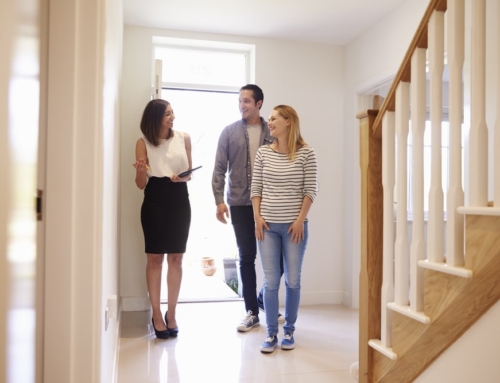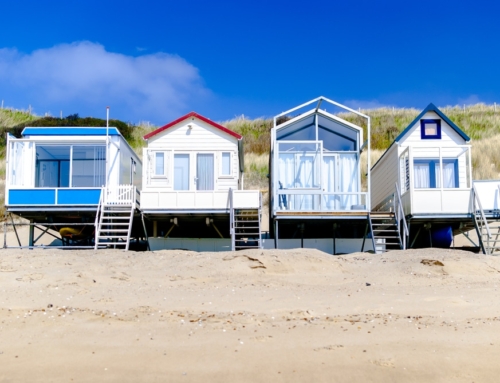Are you ever too old to buy your first home? Of course not! Just make sure you understand what’s required of you as a homeowner and a real estate investor before you buy.
Q: I am almost 61 years old and single. I moved to Baltimore and would like to buy a small two-flat to live in for the rest of my days. I’d live in one and rent out the other, so I guess I’m planning to be a real estate investor and a first-time buyer. I am able to pay cash up front and I don’t need a mortgage.
I recently read online that I am considered too old to buy my first house. I ask you, should I rent, or buy? I really want my own garden and have my own space. I am tired of living by other people’s rules. What do you think?
You’re Never Too Old to Buy Your First Home
A: How frustrating. After more than 25 years of advocating for everyone to have the right to buy a first home, we’re horrified to think that someone on the internet thinks you’re too old – at any age.
We think that you’re never too old to buy your own home and live on your own, so long as your health and finances permit it. You seem to have your finances in order, as you can pay cash for the home you’d like to buy. Moreover, you’re thinking about buying a two-flat, which will provide additional income in retirement, possibly in excess of what you’d earn on that cash in the bank. Smart move.
While you may have never owned your own home, you have lived in many properties over your life. Owning requires more responsibilities relating to maintenance and upkeep. But you can make your own decisions and not have to worry about a landlord who doesn’t want to renew your lease.
Expenses to Consider When Buying Your First Home
You should be familiar with many of the expenses and costs of renting a home and have seen the many issues that can and do go wrong with homes, apartments and townhomes you’ve lived in. When you become an owner, it will be up to you to fix the roof, heating, cooling, plumbing and other parts and systems in the home.
If you are up for that, and the other challenges of owning investment property, by all means, go ahead. You might want to build a cadre of trusted professionals who can provide a variety of services: landscaping, snow removal, plumbing, electrical, and general maintenance or contracting. Knowing who to call when something goes wrong is more than half the battle.
Aging in Place in Your First Home
Many people have asked us the same question over the years. The issue to think through isn’t the age or stage in life where you are today. You need to understand how flexible and/or appropriate your home will be as you age there, as your needs and the needs of your family change, and how you’ll know when the time is right to sell and move on if the home you purchased is no longer suitable.
When you’re young, you might feel comfortable owning and living in an apartment on the fourth floor of a walkup building. Later in life, walking up those stairs might not feel good anymore. Instead of looking at it as having extra steps in your day, every step might be painful or even impossible to manage. Some families are fine raising their children in northern climates but then retire to warmer locations.
At 60, you’re old enough that you should evaluate your health and physical considerations and think about how you’ll manage the property as you get older. You might find that you’ll remain quite healthy into your 70s and even 80s. If you are, you should be able to handle most of the issues that come up and can tap into that trusted group of professionals to take care of repairs and other improvements that are needed over time.
Being a Real Estate Investor and a First Time Buyer – At the Same Time
One thing that’s a bit different is that you’re planning to be a first- time real estate investor and a first-time buyer – all at the same time. Being a real estate investor carries its own possible issues, especially when you plan to live in the building with your tenant: Landlording isn’t for everyone. You might find you have no problems owning your own home but have trouble being a landlord. The two things can be mutually exclusive.
Being a landlord means you have to find tenants on a regular basis. Even with the best of luck, you might find a tenant who doesn’t pay you on time (or at all) or doesn’t like abiding by your rules or impedes the life you want to have in your own property.
Having tenants carries with it the risk that you might get a bad tenant and the benefit that you might have a great tenant. You’ll need to do your homework to make sure you end up with the right person and/or family to share your two-flat.
Then, hire a good real estate attorney to draw up a contract you can use that clearly states the rules of the property (for example, will you allow the tenant to rent out the property by the night via Airbnb or VRBO?) and what will happen should the tenant break those rules.
If you prepare carefully, you shouldn’t have any trouble being a real estate investor and a first-time home buyer. Good luck and happy house hunting!
Related Articles
Are You Ever Too Old To Get A Mortgage?
What You Need to Consider Before Buying Your First Home Later in Life
Buying Your First Home: How to Find the Right Mortgage Lender
How to Deal with Tenant Problems







Leave A Comment